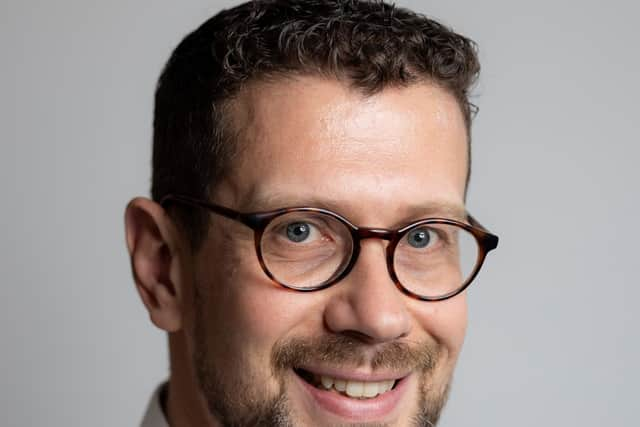Having installed a £1.2m gas to grid system at its existing anaerobic digestor, Bio Capital has the capability to export enough gas to decarbonise Dungannon’s entire annual gas consumption.
The gas injection went live on Thursday and because biomethane is similar to natural gas, it is able to be blended into the network without the need for any changes in transmission and distribution infrastructure or end-user equipment.
Being 100% renewable and compliant with existing gas infrastructure means biomethane has the potential to play a major role in Northern Ireland’s transition to net zero. When generated from organic waste and used for heat, biomethane could produce greenhouse gas savings of up to 92% compared to natural gas.
Welcoming the significant milestone for Northern Ireland Bio Capital’s chief technical officer Dr David McKee, said: “This is the first major step in increasing the amount of power, heat and transport that can be fuelled by renewable gas. Bio Capital has a wealth of experience in this area and a number of its other UK facilities are already injecting biomethane into the gas network, but this is a first for Northern Ireland – where we begin our journey towards a sustainable drive for indigenous renewable gas.
“Granville has been generating renewable gas since 2014. Up until now we have been using the gas to generate electricity on site, fuelling gas powered HGVs and transporting biomethane to customers for heat and power by road in pressurised containers. Having this gas to grid connection now offers us a further route to market.
“Replacing imported fossil fuels with a renewable low carbon alternative will go a significant way towards helping Northern Ireland exceed its targets set within the Energy Strategy and Climate Change Act. Diverting biodegradable waste from landfill to generate biomethane is also in line with the draft Circular Economy Strategy and the Department of Agriculture, Environment and Rural Affairs (DAERA) ambition to ban biodegradable goods going to landfill by 2030.”
The largest facility of its kind in Northern Ireland, Bio Capital produces biomethane by recycling biodegradable waste (packaged and unpackaged) from local Councils, the hospitality sector and food and drink processors as well as using it as a feedstock for anaerobic digestion.
Evolve, the distribution network operator for the west of Northern Ireland, is spearheading this transformative journey for the energy industry.
David Butler, director at Evolve, added: “This is a monumental day for both the region and Evolve as a business. As we move forward, we emphasise the critical importance of strategic collaboration across all facets of the energy industry. A just transition demands cooperation, partnership, and coordinated efforts from government bodies, businesses, researchers, customers and communities. By uniting our collective expertise and resources, we can navigate the complex challenges ahead, ensuring that no one is left behind in the pursuit of a sustainable and equitable future. This is not a token connection; it is just the start of a journey to fully decarbonise our entire network by 2030.”

In a first for Northern Ireland, Granville Eco Park, Dungannon, a Bio Capital Group company, has started injecting renewable biomethane into the local gas network. Pictured is Dr David McKee, chief technical officer, Bio Capital